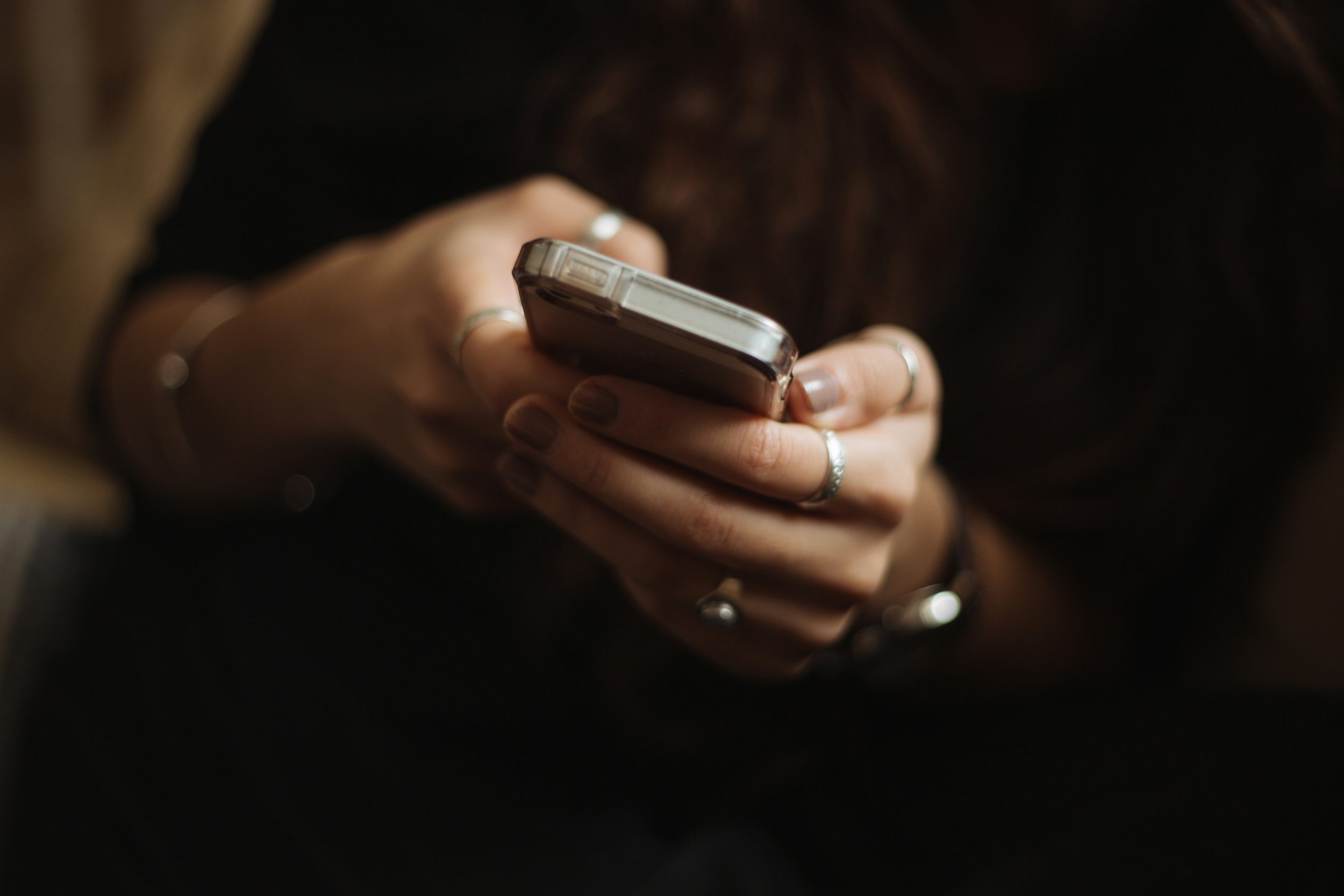The development of technology has introduced a whole new world of possibilities in the care and treatment of mental health. The increase of mobile devices such as smartphones, tablets, and computers has created more accessibility to digital spaces than ever before, and now more than 95% of American adults use the internet on a regular basis.1 This widespread use of technology provides researchers and healthcare professionals with new modes of connecting with patients, as mobile apps and online platforms become a place that people can monitor their progress, access virtual help, and receive information on how to take care of their mental health. The increase of telehealth appointments and AI-driven therapies can also be attributed to our ever-increasing technology-dependent society.
The sophistication of mobile apps increase with each year, and each year app developers create new and enticing apps that are marketed to improve mental health and monitor progress. With thousands of options available, consumers are able to download apps that give them advice, track their behaviors, meditate, improve memory and thinking skills, and so many other wellness benefits. The treatment of mental health can take form in so many different ways, and this has led to an increase of mobile app development targeted toward mental health treatment. With so many options available (and a lack of regulation), it can become overwhelming for people to know what apps can be trusted and are proven to be effective. In this blog, we will discuss many aspects of mobile apps targeted toward mental health — their effectiveness, current trends in research and development, and their pros and cons.
Mental Health Apps Create Support
Though mental health is a critical aspect of every individual’s well-being, there is a huge gap in access to resources and treatment for Americans and all over the world. In developed countries, there is an access gap to mental health care amounting to 35%-50%, while developing countries see a gap closer to 75%-80%.2 In an attempt to close the disparity in mental health treatment, mental health professionals and software engineers have teamed up to try and provide some level of intervention to those who cannot receive it, or for those who are looking for a more feasible way to access care. When app developers and clinicians come together to create an easy-to-use platform for individuals to receive effective, informative care, it becomes a promising and important way to utilize technology. It can create support and guidance to a great number of people who previously did not have access to mental health care at all. However, this becomes difficult to manage as the number of mental health apps goes up with no one to check or review the material.
Who is checking the credibility of these apps?
As the world of technology advances, the number of mental health mobile apps has risen. Research conducted in 2022 found that there are an estimated 10,000 to 20,000 mental health apps available to download for users worldwide, with each app being created with the intent to target specific mental health concerns.3 It might sound appealing to know that there are so many different options to choose from, as it provides users with a chance to try an app that caters well to their needs. However, a 2015 World Health Organization survey done on over 15,000 mobile health apps revealed that only 29% were actually focused on mental health diagnosis, support, or treatment.4 Currently, there are no review boards or regulatory practices put in place that fact-checks the information that mental health apps provide. Most do not go through randomized clinical research trials to check their effectiveness, and they do not include peer-reviewed research to back up the validity of their content.
Types of Mental Health Apps
Beyond its affordability and quick accessibility, there are many reasons why individuals may decide to download an app geared towards mental health treatment. Researchers and engineers have worked strategically to create online spaces that adequately address all aspects of mental health concerns. Mental health apps are created to assist and treat users at all stages of clinical need. For example, there are apps to help individuals who are looking for prevention services, meditation, crisis intervention, diagnosis, supplemental information to in-person treatment, and overall management. The U.S. National Institute of Mental Health classifies mental health apps into six different categories based on their function and issues they particularly address.4 The 6 different types of mental health apps include: self-management, cognition improvement, skills-training, social support, symptom tracking, and passive data collection.4 Currently, app developers are focused on building sites that are geared towards these topics.
- Self-management: This type of app enables users to put information into the app in order to receive feedback or keep track of information. This app may be used to set reminders for taking medication, logging biometric information such as heart rate, blood pressure, breathing patterns, etc. These apps may also have content that helps individuals manage anxiety, stressors, or other problems.
- Cognition improvement: This type of app helps users improve their thinking. It is typically geared towards individuals who may have serious mental health issues who have unhelpful, harmful, or distorted ways of thinking that can lead to false beliefs.
- Skills-training: This type of app focuses on helping individuals learn new skills to improve their coping or thinking. These apps may tend to feel more ‘game-like’ in comparison to other mental health apps, as they might have users watch educational videos on how to manage anxiety or stress. Individuals can then pick which skills work for them and use the app to keep track and learn more.
- Social support: This type of app allows users to interact with another person. Users may connect to another person who is looking for peer support or to a healthcare professional who can provide assistance and care.
- Symptom tracking: This type of app uses sensors built into smartphones in order to record social interactions, movements, behaviors, vocal tone/speed, and other metrics throughout a user’s day. This type of app is currently under development in order to analyze data in a deeper way to give insight to a person’s state of mind ahead of mental health episodes.
- Data collection: This type of app is not so much geared toward supporting users individually, but more so for receiving widespread feedback and information for the benefit of development and research. This app does not need input directly for users, and is focused on collecting data to assist researchers with developing new interventions.
Do mental health apps actually work?
Though there are thousands of mental health apps available to download, less than 5% of these apps have actually been studied for efficacy.5 Some studies have been conducted to test the effectiveness of mobile apps when compared to traditional psychiatric treatment, specifically depression, anxiety and schizophrenia.4
Depression
Research demonstrates that mobile mental health apps that utilize cognitive behavioral therapy, mood monitoring, mindfulness training, and thinking skills to specifically treat depressive symptoms are on the rise. A meta-analysis of 18 randomized control trials on 22 mobile apps stated that the apps were able to alleviate symptoms and help users self-manage depressive symptoms compared to control groups.4 The analysis discovered that mobile-based therapies were most impactful and beneficial for people with mild to moderate depression, not major depressive disorder.
Anxiety
A meta-analysis was done on 9 randomized control trials that looked at the effects of mobile app interventions on symptoms of subclinical and diagnosed anxiety disorders.4 This research concluded that users who used the apps experienced a reduction in total anxiety symptoms, and that mobile apps that specifically focused on reducing anxiety saw the greatest reductions in anxiety when they were paired with in-person or telehealth-based therapy.
Schizophrenia
A systematic review was conducted on 5 studies that looked at mobile apps focused specifically on treating behavioral symptoms of schizophrenia.4 Results found that users had a 92% retention rate for continuously using the app, and there were about 3.95 interactions that the patient had with the app per day. Patients noted that having a positive user experience with the app, and felt that they were receiving broad-range clinical benefits from using the app.
What to keep in mind
Having a large number of mental health apps on the market does not mean that each app is in constant or even regular use. Research done on user retention found that 4% of users who downloaded a mental health app continue to use it after 15 days, and only 3% continue use after 30 days.3 In addition, most mental health apps have almost zero active users, while a handful of apps have millions of individuals who are actively using it. Knowing that there is such a disparity in active usage can provide some helpful insight when it comes to choosing which app may be most effective and beneficial to an individual.
Many other factors can play a role in choosing a mental health app to download, such as ease of use, attractability, effectiveness, peer-reviewed content, and necessity. It is important to keep in mind that mental health apps are NOT a substitution for in-person or telehealth psychiatric care and development of such apps is still in comparatively early stages. It is important to ask trusted health care providers for a recommendation on specific apps, look for apps that cater to your needs whether you want a place to log symptoms or supplemental advice, look for information on the developers, beware of misleading information, and know where to look for help if you are in a crisis situation. A mental health app can become a great tool for support, but cannot substitute other forms of mental health intervention entirely.
References:
-
https://www.pewresearch.org/internet/fact-sheet/internet-broadband/
-
https://link.springer.com/article/10.1007/s41347-023-00360-z
-
https://www.ncbi.nlm.nih.gov/pmc/articles/PMC8844980/
-
https://www.ncbi.nlm.nih.gov/pmc/articles/PMC5897664/
-
https://mhealth.jmir.org/2020/5/e17458/
-
https://nutrition.org/how-to-boost-mental-health-through-better-nutrition/







